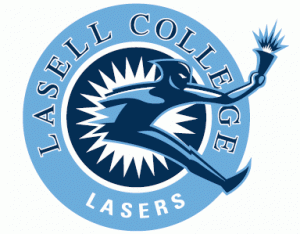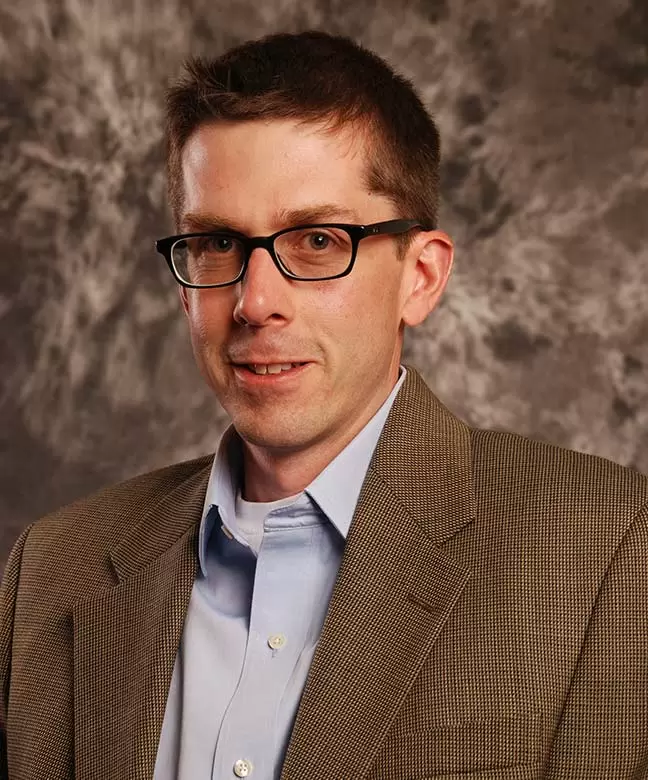
We need people with strong data analysis and computer skills.
 Dr. Michael Daly is an Associate Professor of Environmental Science at Lasell College, a small liberal arts college located outside of Boston in Newton, MA. Dr. Daly has a BS in Biology from Siena College in Albany, NY; an MS in Teaching of Secondary Education in Biology from SUNY Plattsburgh in New York; and a Ph.D. in Geography from Boston University, MA.
Dr. Michael Daly is an Associate Professor of Environmental Science at Lasell College, a small liberal arts college located outside of Boston in Newton, MA. Dr. Daly has a BS in Biology from Siena College in Albany, NY; an MS in Teaching of Secondary Education in Biology from SUNY Plattsburgh in New York; and a Ph.D. in Geography from Boston University, MA.
Dr. Daley, did you always want to be working at a job involving the environment?
As an undergraduate, I majored in biology thinking I would become a health care professional. I quickly discovered that I really enjoyed the outdoor field experiences in general biology. I started taking electives in ecology and environmental science instead of human biology subjects. At the same time, I started working at Pok-O-MacCready Camps in the Adirondacks as an outdoor educator and counselor. I loved spending time in the woods and mountains and this experience really helped me recognize I wanted a career working in the environment.
What aspects of being a professor do you enjoy?
I really enjoy the variety of experiences in my job. Lasell College is a teaching institution and as a professor, I spend most of my time during the semester working on my teaching. I have the opportunity to share with students my enthusiasm for science research and to teach about environmental issues. I work hard to empower students to advocate for change in the communities where they live and work to improve environmental conditions. During the summer months, I have the opportunity to return my focus to research. In recent years, I have had the opportunity to work at the Boston Area Climate Experiment to conduct research on the impact of changing temperature and precipitation on vegetation.
Have there been exciting breakthroughs in your field?
This is a difficult question to answer. I would not describe the most significant breakthroughs as exciting but, rather, as discouraging. As we continue to learn more about the impacts of anthropogenic climate change, the results are discouraging particularly in ecology studies. However, there are some exciting energy innovations emerging that will reduce our emissions of greenhouse gases. The development of more efficient and lower cost solar cells is exciting. Similarly, wind generation technology continues to develop. The increase in the fuel efficiency of vehicles and the development of electric cars is exciting. I am also excited about developments in converting algae into biofuel.
What makes for a successful student in the field of environmental studies?
Many students enter the environmental fields because they enjoy working in the outdoors. This is important but it is equally important that students have strong quantitative and data management skills. While I do get to spend time outdoors, I spend more time analyzing the data I collected. Dataloggers and other technology now make it possible to collect huge amounts of data over a short period of time. We need people with strong data analysis and computer skills to process all of this information.
Some of my most significant learning experiences happened outside of the classroom.
What have been the characteristics that have allowed you to be successful?
Working in the outdoor environment can be challenging. The weather and bugs are not always pleasant to deal with. I have always been able to push through miserable conditions to get the job done.
What one thing would you like to see changed in environmental education?
I would like to see students spending more time outdoors as part of their science learning. Logistical details in K-12 schools and at the college level make it challenging to provide students significant outdoor learning opportunities. I have led many trips into the woods with campers at Pok-O-MacCready and students at Lasell College. I have seen how significant these experiences can be for students and how wilderness experiences really help to shape their environmental ethic.
What do you hope to have accomplished by the end of your career?
Atmospheric CO2 levels are currently at 400 ppm and increase about 2 ppm per year. Unless drastic changes are made, CO2 levels will be over 450 ppm at the end of my career. The effects of this level of CO2 on natural processes will be significant. I hope to do as much as I can to make sure we do not reach that level. Through my research, teaching, lifestyle choices, and engagement in advocacy, I hope to be part of this effort to stop our rising CO2 levels.
What advice would you give someone who wanted to follow in your footsteps?
I would advise someone to surround themselves with strong mentors. I had a terrific advisor at Siena College as an undergraduate. Similarly, I had an amazing advisor in graduate school at Boston University. Some of my most significant learning experiences happened outside of the classroom. The conversations I had with my advisors while travelling to field research sites were so important in my professional development. In the environmental field, mentors do not have to be teachers or faculty though. There are thousands of community organizations working on environmental issues. The leaders of these organizations are some of the most passionate people I have ever met and students should jump at the opportunity to work with them.




